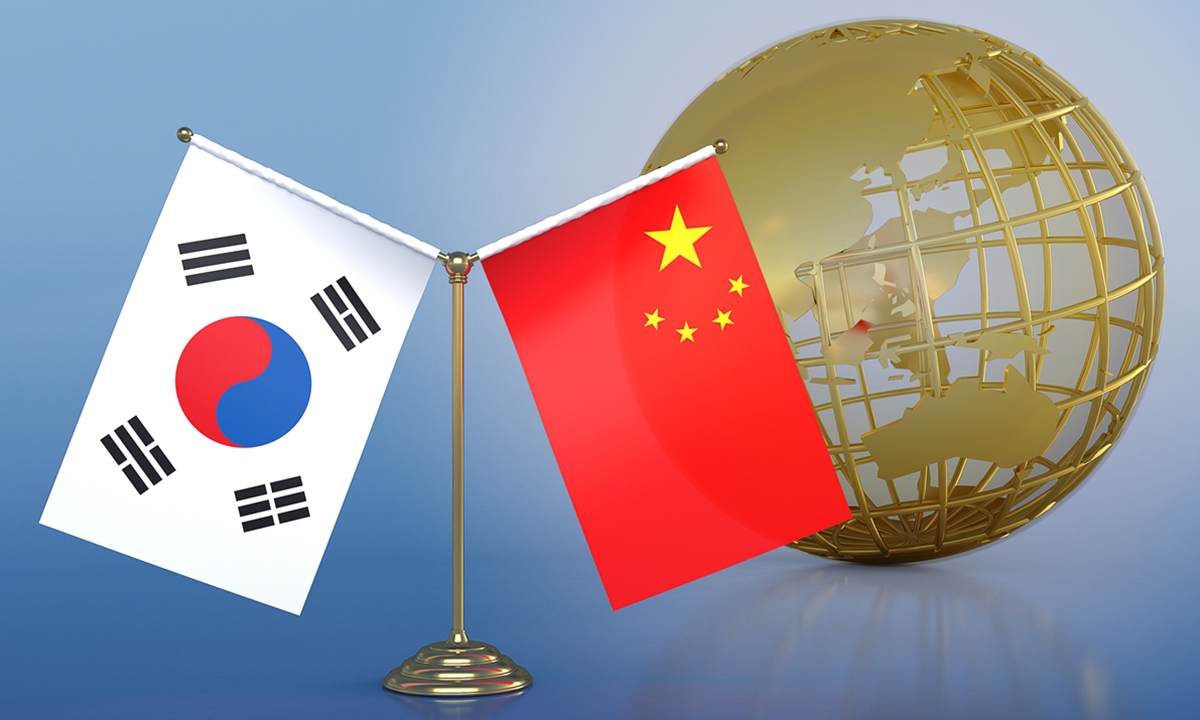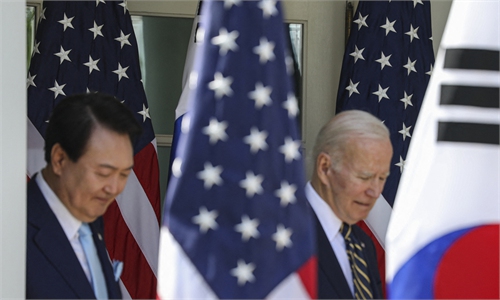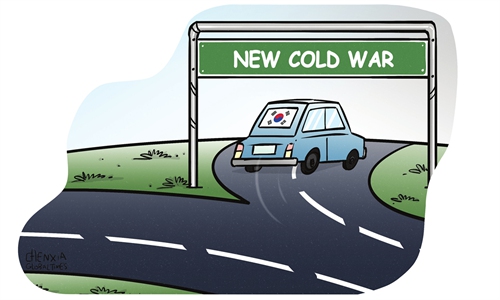
China South Korea Photo:VCG
Despite the seemingly strengthened US-South Korea alliance, the importance of China-South Korea economic cooperation is still irreplaceable for the South Korean economy.South Korea's Ministry of Trade, Industry and Energy on Tuesday announced plans to strengthen cooperation with China and rolled out a set of measures meant to boost exports to its largest trading partner, according to the Yonhap News Agency.
Specifically, the government is aiming to expand exports with China in three key areas, which are new industries, such as secondary batteries, as well as consumer goods and the fields related to the digital and green transition.
The ministry's plans came against the backdrop of South Korean President Yoon Suk-yeol's pro-US policies having worsened bilateral relations and the country has experienced a continuous fall in exports to China in recent months. According to recent data from Reuters, South Korean exports fell for a seventh straight month in April, down by 14.2 percent year-on-year, while its exports to China dropped 26.5 percent, marking its 11th consecutive month of declines.
Given the continuous deficit seen in South Korea's foreign trade and its continuing economic downturn, it is understandable if South Korea wants to strengthen economic and technological cooperation with the US to help relieve its economic pressure and achieve high-quality development. But that doesn't mean it can be blindly sided with the US when it comes to containing China and harming China's interests, which will only plunge China-South Korea economic and trade relations into a more difficult situation.
During Yoon's recent visit to the US, South Korea and the US agreed to enhance alliance on such areas as security, economy, technology, among others, and issued a series of documents such as the US-ROK joint statement, which once again mentioned "peace and stability in the Taiwan Straits." Previously, China's foreign ministry spokesperson already said that "We hope the ROK side will follow the spirit of the China-ROK Joint Communiqué on the Establishment of Diplomatic Relations, stay committed to the one-China principle, and prudently handle matters related to the Taiwan question."
The Yoon government's inclination to work with the US at the expense of China-South Korea cooperation is dangerous. With the supply chains highly intertwined, China and South Korea are highly interdependent in terms of economic cooperation. China is an important market for many South Korean end products, and also an important assembly and production base for the exports of South Korean intermediate products to third countries.
Meanwhile, a simple glance at what Washington has been engaged in when it comes to shoring its own manufacturing would tell why the US is not a reliable partner for economic cooperation. Both the CHIPS Act and the Inflation Reduction Act show that Washington now only has its own national interest at heart, with no consideration for its allies.
China has never hindered South Korea's economic cooperation with the US. Indeed, in the past, the cooperation between the two sides in some fields has been conducive to the economic relations between China and South Korea, contributing to the development of both the Chinese and South Korean economy.
Yet, the recent documents issued by South Korea and the US give the impression that South Korea's foreign and economic policies are undergoing a major change, which is eyeing to replace China cooperation with closer strategic cooperation with the US. This will only see South Korea following the US into a dead-end.
The stakes behind South Korea taking sides are high, which will not only affect its industrial and supply chains, but its entire economic structure. By becoming a vassal of US strategy in "decoupling" from and containing China, South Korea must have much more to lose than what it could gain from the US. Thus, the Yoon government is advised to reflect on its choice before the South Korean economy takes a devastating hit.



